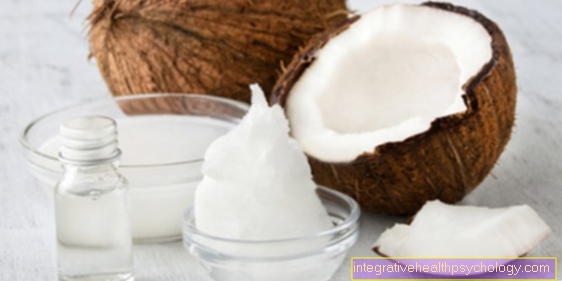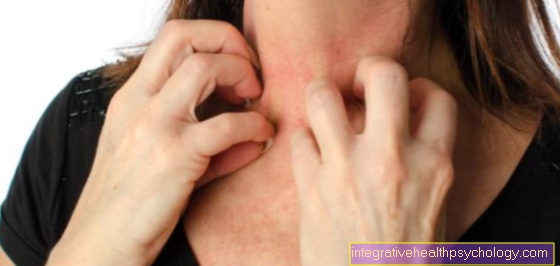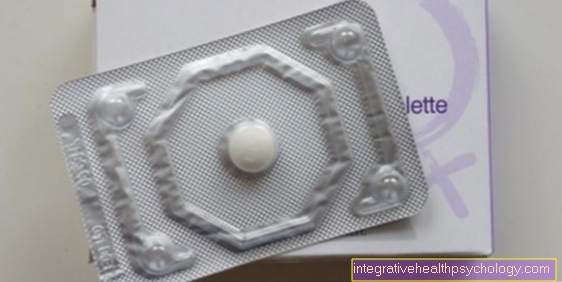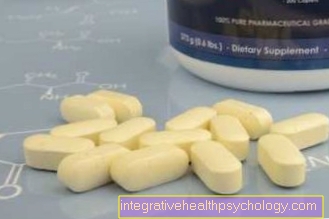Dental care with coconut oil
introduction
Coconut oil is said to be through its antibacterial, antiviral, antifungal and antiparasitic effects help to combat germs and is becoming more and more important in naturopathy.
Can coconut oil replace the daily cleaning of teeth with toothpaste? How are the side effects of coconut oil to be classified and to what extent are there long-term studies that prove the effectiveness of coconut oil in the oral cavity?
Or is coconut oil just a trend?

Why brush your teeth with coconut oil?
The lauric acid in coconut oil breaks down the fatty cell membrane of the bacteria and thus kills them. It is a long-chain fatty acid and counteracts pathogenic bacteria and fungi. However, the antibacterial effect is very low and should not be overestimated.
There are only a few scientifically proven results and studies on thisthat could prove long-term success.
Coconut oil is never an alternative to fluorides, which have been proven to support dental health and reduce the risk of tooth decay.
Read also: Fluoridation of teeth
However, one hears from more and more people that they use coconut oil - whether for hair, face, teeth or for cooking. Coconut oil seems to be a new trend, but at least in the field of dentistry, it cannot keep its promises.
How do you use coconut oil?
The daily application with coconut oil is done by oil pulling. The user takes a tablespoon of coconut oil in their mouth and pulls the oil, which becomes liquid after a few seconds due to the warmth of the mouth, back and forth between the teeth. This process should last about fifteen minutes so that hard-to-reach areas such as the interdental spaces can be reached. Since the application takes a long time, it takes some getting used to for most users.
Does Coconut Oil Get Whiter Teeth?
The lauric acid as a component of coconut oil has dissolving properties. Since the lauric acid is evenly moved back and forth between the teeth during oil pulling, it wears away something everywhere. This means that it loosens existing deposits.
As a result, however, the hard tooth substance, the tooth enamel, also dissolves and the superficial layers are removed. Since discolorations often accumulate on the tooth, a whitening effect can actually be achieved, but this is very little pronounced and carries a high price:
Dissolving tooth enamel with acid to get lighter teeth is not in a medical sense. On the contrary:
The detached tooth enamel is not renewed - what is lost does not come back. Furthermore, due to the use of the acid contained in coconut oil, the surface structure is no longer smooth, but rather rough, so that bacteria have an easy time attaching themselves to the tooth and causing tooth decay.
The tooth is weakened by the removal of the tooth enamel, which in a sense represents a protective coating for the tooth. The protective coating is getting thinner and thinner, so that the tooth becomes sensitive to thermal and chemical stimuli.
Learn more at: White teeth
Side effects
Side effects that occur from regular use of coconut oil are largely due to the lauric acid it contains.
This namely dissolves the hard tooth substance, which cannot be reproduced and built up again. The enamel serves as a protective coat for the tooth itself. If its layer thickness decreases, the tooth reacts sensitively to stimuli such as heat, cold or sweets, i.e. pain is caused.
The surface of tooth enamel is usually very smooth. However, acids make it rough - this also applies to the use of coconut oil. Bacteria can now attach to the tooth more easily and cause caries to develop.
If you take too much coconut oil orally, i.e. if you regularly swallow large chunks of oil, your body is at risk of increasing blood pressure and cholesterol. In the worst case, this can lead to heart disease leading to a heart attack or stroke.
Intestinal illnesses such as diarrhea can also be a result of excessive use and the associated consumption of coconut oil. In the case of an allergy to coconut oil, use as a dentifrice can lead to an allergic shock that can be life-threatening.
Can coconut oil replace toothpaste?
Coconut oil cannot replace brushing with toothpaste. Toothpaste has always been improved in terms of its effect and tolerance and is optimally matched to dental care. The addition of fluorides is also important, as these are one caries prophylactic effect have and the Enamel support.
There are recipes for toothpaste in which coconut oil is combined with turmeric and salts or baking soda are also added. The toothpaste is then given a highly abrasive, i.e. abrasive, character and is therefore unsuitable for dental care.
Scientific assessment by
The use of coconut oil for dental care should be viewed extremely critically. There are too few scientific studies on the effectiveness of coconut oil and the lauric acid it contains causes not negligible side effects that damage the tooth.
Coconut oil is a food and one shouldn't consider brushing one's teeth with coconut oil or using what is known as oil pulling - this seems like a newfangled trend, but it is not appropriate in dental care.
Coconut oil with turmeric
Turmeric is used in naturopathy due to its anti-inflammatory, antibacterial and pain-reducing effects applied.
However, there is still no scientific evidence for its use in daily dental care. Some users claim to have achieved a whitening effect, but like coconut oil, this cannot be healthy for the tooth.
Brush with baking soda and baking powder
Baking powder and baking soda consist of coarse-grained salts, the silicates, which are absolutely unsuitable for dental care. By scrubbing the salt with a toothbrush, the silicates have an abrasive effect, which means that tooth structure is removed.
The tooth becomes gradually thinner and the enamel, which is the protective coating of the tooth, is lost. Baking powder and baking soda can be compared to sandpaper in terms of their effects, as enamel is constantly removed. As a result, the yellow dentin shines through more and more, the teeth become sensitive to external stimuli and can cause severe pain.
It is therefore not advisable to use baking soda or baking soda on the teeth.





























